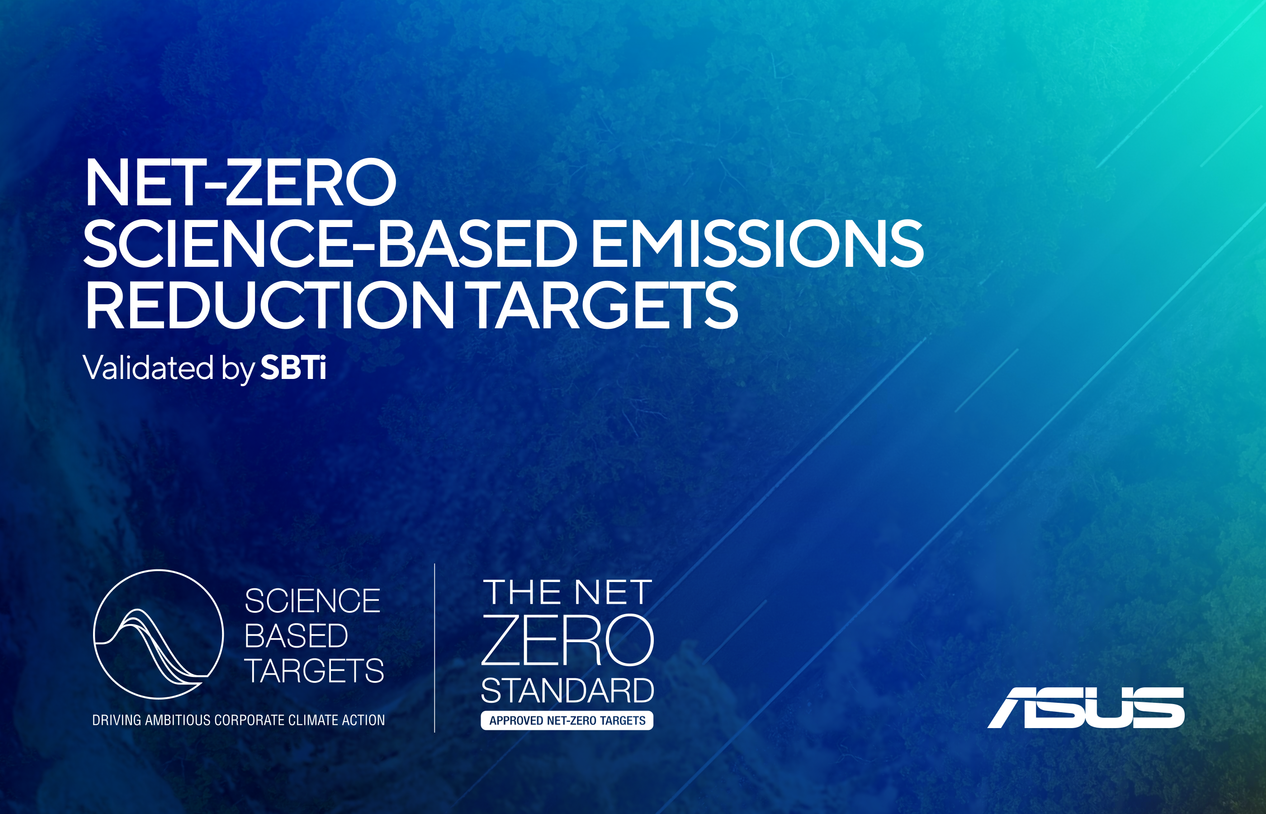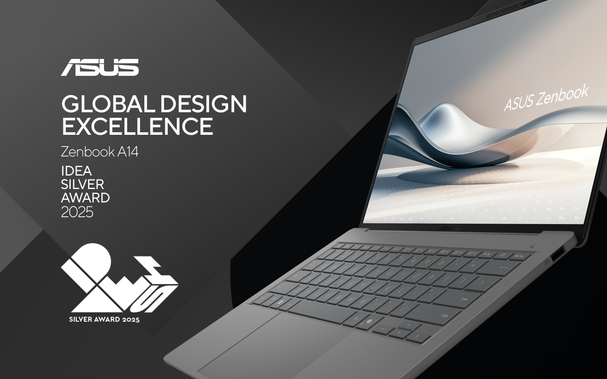ASUS Net-Zero Science-Based Emissions Reduction Targets Validated by SBTi
Science Based Targets initiative approves net-zero target set by ASUS, reinforcing the company’s commitment to all-around decarbonization by 2050
- ASUS net-zero science-based emissions reduction targets have been validated by SBTi, confirming its alignment with the Paris Agreement’s 1.5°C goal.
- Target is absolute 90% GHG emissions reduction in Scopes 1 and 2 combined, and an absolute 90% GHG emissions reduction across Scope 3 by 2050
- ASUS 2024 accomplishments include 55% renewable energy usage, 28% drop in supplier carbon intensity, and laptops outperforming ENERGY STAR by 47.9%
TAIPEI, Taiwan, June 3, 2025 — ASUS today announced that its net-zero science-based emissions reduction targets have been validated by the Science Based Targets initiative (SBTi). This follows the company's near-term target validation in 2023, reaffirming a commitment to aligning its climate actions with the Paris Agreement's goal of limiting global warming to 1.5°C. ASUS pledges to achieve an absolute 90% greenhouse gas (GHG) emissions reduction in Scope 1 and Scope 2 combined, as well as an absolute 90% GHG emissions reduction in Scope 3 by 2050.
The SBTi review assessed the actual emissions reduction performance of ASUS starting from 2021, together with the effectiveness of the company’s overall climate action plan — a three-phase net-zero roadmap that focuses on strategies such as enhancing energy efficiency, expanding the use of renewable energy, and advancing innovative technologies. Compared to near-term targets, the 2050 net-zero long-term target requires more rigorous verification. This includes requiring companies to align with SBT reduction pathways, implement carbon reduction plans, and carry out comprehensive GHG inventories across the entire group with third-party verification. It also mandates full coverage of Scope 3 emissions management and target setting. In addition, companies are required to enhance the feasibility and transparency of their targets through annual disclosures and a five-year SBTi review mechanism.
Company-wide climate progress
ASUS has demonstrated measurable climate progress across multiple fronts. In operations, the company has set a target to achieve 100% renewable energy use across its global operations centers by 2035, and achieved a 55% renewable energy usage in 2024. On the data front, ASUS has built its own carbon data management platform to support 118 subsidiaries and over 800 suppliers to systematically manage carbon data and GHG accounting inventory. In the supply chain, key supplier engagement efforts led to a 28% reduction in carbon emissions intensity in 2024 compared to the 2020 baseline. In end products, ASUS notebooks outperform Energy Star efficiency standards by an average of 47.9%, demonstrating tangible carbon reduction performance in both major emission sources – supply chain and product energy efficiency.
ASUS is committed to sustainability and data as its core principles, continuously driving a dual-axis transformation. Looking ahead, the company will continue to enhance the energy efficiency of its products and operations, collaborate with its suppliers to build a low-carbon supply chain, and actively explore innovative technologies for products and energy. By leveraging core business strengths and integrating external resources to drive innovation, ASUS aims to use data to progressively advance the entire value chain towards net-zero emissions.
About SBTi
The Science Based Targets initiative (SBTi) is a non-profit climate action organization that enables companies and financial institutions worldwide to play their part in facing the climate crisis. By developing standards, tools, and guidance, SBTi enables companies to set targets aligned with the 1.5°C global warming limit outlined in the Paris Agreement.





